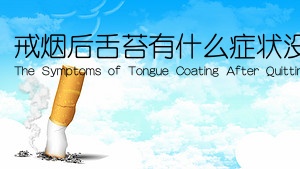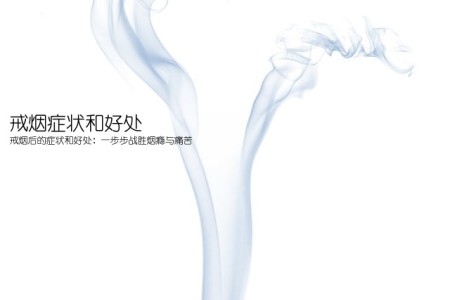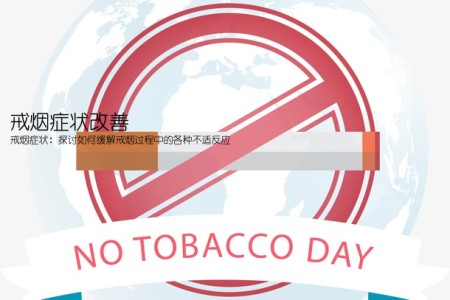戒烟后舌苔有什么症状没有(The Symptoms of Tongue Coating After Quitting Smoking A Comprehensive Guid
Quitting smoking is a giant leap towards a healthier life, but the road to a smoke-free life is not an easy one. Many smokers often find themselves struggling with various withdrawal symptoms, including tongue coating. While it may seem like a minor issue, tongue coating can actually be a significant concern for those trying to quit smoking.
In this article, we will explore the various symptoms of tongue coating after quitting smoking, why it occurs, and the methods available to alleviate it.
What is Tongue Coating?
Tongue coating is a buildup of debris, bacteria, and dead cells that accumulate on the tongue. This buildup can often appear as a white or yellowish layer over the tongue, and can be the result of various factors, including poor oral hygiene, medications, allergies, and smoking.
What Causes Tongue Coating After Quitting Smoking?
When you quit smoking, your body undergoes various changes. As your body starts the detoxification process, the taste buds start to regenerate, and your senses of taste and smell improve. However, the increased sensitivity can also lead to an increase in the buildup of tongue coating. This is because the tongue is now more able to feel the debris and bacteria that previously went unnoticed.
The Symptoms of Tongue Coating After Quitting Smoking
1. Bad Breath
Tongue coating is a significant contributor to bad breath. The accumulation of bacteria and debris on the tongue create an unpleasant odor that can be difficult to mask.
2. Loss of Taste
Tongue coating can also impact your ability to taste. The buildup can block the taste buds, making it difficult to distinguish between different flavors.
3. Itching and Burning Sensations
The accumulation of debris and bacteria on the tongue can cause itching and burning sensations, which can be frustrating, uncomfortable, and distracting.
4. Sore Throat
Tongue coating can also lead to a sore throat as the bacteria and debris can irritate the throat.
5. Difficulty Swallowing
In severe cases, tongue coating can cause difficulty swallowing due to the accumulation of debris at the back of the tongue.
How to Alleviate Tongue Coating After Quitting Smoking
1. Practice Proper Oral Hygiene
Regular oral hygiene is essential in preventing tongue coating. Brush your teeth twice a day, floss daily, and use an antibacterial mouthwash.
2. Stay Hydrated
Drinking plenty of water can help flush out the debris and bacteria that contribute to tongue coating.
3. Eat a Balanced Diet
A balanced diet can help keep your mouth healthy by providing the necessary nutrients and minerals.
4. Use a Tongue Scraper
Using a tongue scraper can help remove the buildup of debris and bacteria on the tongue.

5. Consult a Medical Professional
If the symptoms of tongue coating persist, it may be necessary to seek medical attention. A medical professional can rule out any underlying conditions and provide the necessary treatment.
In conclusion, tongue coating is one of the many symptoms smokers may experience after quitting. While it may be a minor issue, it can cause significant discomfort and can impact your ability to taste and smell. By practicing proper oral hygiene, staying hydrated, eating a balanced diet, and using a tongue scraper, you can alleviate the symptoms of tongue coating and enjoy a happier, healthier, smoke-free life.






